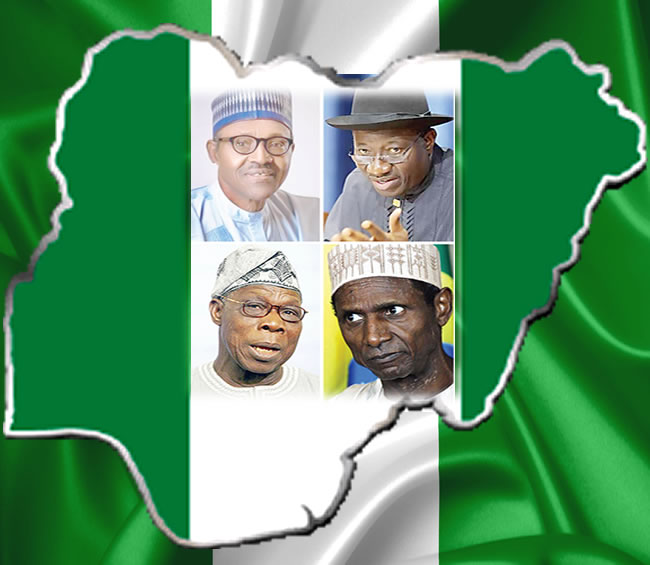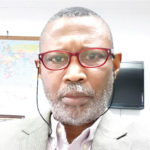LANRE ADEWOLE attempts a capture of the pains and gains of Nigeria’s longest-running “ballot governance.”
“This day, May 29, 1999, must rank second only to October 1, 1960.” That was Abdulsalam Abubakar, a General in the Army and the last military Head of State to superintend over the country, at the point of relinquishing political authority and power to another General, (retd) Olusegun Obasanjo, just elected as the first president of a new democratic dispensation the country was embarking on, after 16 unbroken years of military rule.
Receiving the mantle of democratic leadership, Obasanjo himself said at the occasion, “today, we are taking a decisive step on the path of democracy.”
Twenty-two years after and four successive civilian presidents, the decisive step Obasanjo talked about on May 29, 1999, seems to have birthed a decisive decision by Nigerians that democracy is it for Africa’s most populated country.
But the path democracy has taken in the country has been strewn with mines, setting it on the edge on countless occasion, especially in the last six years of the administration of incumbent President Muhammadu Buhari.
The echoes of independence from military jackboot rule in Abubakar’s remark, though self-indicting, possibly ring true for Nigerians to some extent. At a point, it was as if the country would never know civil rule again, but the advocates persisted and May 29 annual celebration of the return of democracy to Nigeria, was a ritual many have clung to, due to the sacrifices of many patriots, including those who paid the supreme price, to water and fertilizer the ground on which the democracy seed was sown.
While democracy has obviously germinated with the historic 22-unbroken years of successive change of guard through the ballot, the desirability or otherwise of the fruits it has brought forth for Nigeria has been endlessly debated, though the country seems united against the return of military rule.
While Abubakar wasn’t the first military leader to smoothly relinquish power to the political class through an election, the first, being Obasanjo himself, who handed power over to late President Shehu Shagari in 1979, the import of the Minna-born General’s statement that May 29 should be Nigeria’s second most-important day in calendar history, lining behind only the Independence Day anniversary every October 1, can be located in the many battles fought against failed handover promises and deferred hope, until he proved to be a gentleman General.
Unfortunately, the democracy that brought so much joy 22 years back is now causing the generality of the people so much despair, that the talk of another military experiment is now featuring in the narrative of how to either save Nigeria from its democratic shackles or save democracy from the shackles of the Nigerian political class. Either way, the indubitable fact is that democracy not breathing properly in Nigeria and the last six years have seen a knee on its neck, while it is gasping for breath.
Significance shifted?
Though General Abubakar and his ruling clique would not give official reason(s) for the choice of May 29 as the point of entry into another democratic dispensation, the date, must have been very dear to him to remark it would not only remain historical like the Independence Day, the gentleman officer, was almost certain it would endure like October 1. But not anymore.
Though the date remains the entry point and terminal exit for elected officials serving constitutionally-guaranteed terms of office, May 29 is no longer Nigeria’s Democracy Day possibly to the joy of those not comfortable with it.
The choice of the date by Abdulsalam, had been criticised by some South-Easterners as anti-Igbo and a mockery of the massive human and material loss suffered by Igbo in the North during the 1966 pogrom.
Historical records as displayed by Wikipedia show that the massacre of Igbo and Southerners living in the North peaked on May 29, July 29 and September 29, 1966. Those opposed to the choice of the date argued that a Northern General picking a date when killing of Southerners peaked in the North to celebrate the return of democracy couldn’t have been a mere coincidence.
Whatever baggage the date came with, especially the suspicion around the motive, was swept aside on June 6, 2018, when incumbent President Muhammadu Buhari, made a significant change to the annual Democracy Day anniversary. He announced June 12 as the new Democracy Day, in recognition of the electoral victory of late business mogul, Moshood Olawale Abiola, in an election considered the fairest and freest Nigeria has ever conducted.
While many saw it as a political move to further enhance his second term aspiration in the South-West, the change in date was still widely applauded, especially by the human rights community which had been at the forefront of keeping the memory of Abiola alive and entrenching the essence of the historical election in Nigeria’s political development, though the winner never assumed office.
Mere ritual or catalyst of hope?
Last year June 12, President Buhari serenaded Nigerians with a 102 bullet-point speech to mark the fifth of the anniversary under him with the sixth of his tenure being expected on June 12 this year and leaving him with just one more, since he would be mandated by the constitutional oath he took to vacate office on May 29, 2023, 14 clear days, before what should be the eighth and final Democracy Day celebration of his two terms, in office as president. While Obasanjo gave eight of such speeches, keeping faith with May 29 despite agitations he should honour his kinsman; Abiola, by moving the date to June 12, his successor-in-office, late President Umaru Yar’ Adua, was able to deliver just two Democracy Day speeches in 2008 and 2009, before death took him away on May 5, 2010.
While the annual national broadcast is gradually becoming a mere ritual where the sitting President reels out a long-list of achievements which the electorate can’t seem to connect with or seemingly not corresponding with the realities on ground, the speech delivered by late Yar’Adua came with some significance. That was the day he set the tone for the well-applauded Niger Delta amnesty programme to end militancy in the oil-rich zone.
Quoting him, “Our offer of amnesty to militants in the region who lay down their arms, remains on the table. I urge them, to avail themselves of this offer and join hands with us and their peaceful and law-abiding compatriots to develop the Niger Delta, for the benefit of its people.” He walked his talk.
Shifting hope
As if by design, large-scale insecurity in the Niger Delta simply shifted to the North East, following the amnesty programme. Five years of President Goodluck Jonathan were largely defined by the Boko Haram insurgency in the North and remained the measuring rope for administration successes at the highest level, in the last 11 years of Nigeria’s nationhood. Nothing memorable may be remembered in what Jonathan said on the five occasions he delivered Democracy Day speeches, but no one would forget in a hurry the October 1, 2010 Independence Day bombing in Abuja, which claimed 12 lives, with 17 badly injured. The first bomb had gone off at about 10.30 am, near Eagle Square, the venue of the Independence celebration.
Eleven years after the presidency “baptism” for Jonathan, both the Independence celebration and Democracy Day fiesta which Abubakar said should be the two most-defining moments for Nigerians, have become a ritual of long speeches, offering the citizenry little or no hope, of tangible delivery of democracy dividends.
Last year, during his Democracy Day speech, President Buhari provided a long-list of his achievements in the last five years, though he acknowledged the hard times, facing the country.
On security, he said, “Ending insurgency, banditry and other forms of criminality across the nation is being accorded appropriate priorities and the men and women of the Armed Forces of Nigeria have considerably downgraded such threats across all geo-political zones.
“All the local governments that were taken over by the Boko Haram insurgents in Borno, Yobe and Adamawa have long been recovered and are now occupied by indigenes of these areas who were hitherto forced to seek a living in areas far from their ancestral homes. The total collapse of the economies of these areas, which constituted a threat to our food security, has also been reversed with the gradual recovery of farming and other economic activities.”
If Nigerians were to even solely reach their conclusion on the essence of Democracy Day’s celebration on above pronouncements by the President and what has become of security between when the speech, was delivered and the next one coming in days, it is doubtful if many would want to celebrate anything in 2021, despite the positive emotions, attached to the date.
However, the economy that has almost gone completely South, was also touted as a major success last year by the President and also expected to feature prominently in this year’s speech.
Quoting him, “On the economic front, our objectives have remained to stabilise the macro-economy, achieve agricultural and food security, ensure energy sufficiency in power and petroleum products, develop infrastructure, fight corruption and improve governance.
“We have witnessed eleven quarters of consecutive GDP growth since exiting recession. The GDP grew from one point nine-one percent in 2018 to two point two-seven percent in 2019 but declined to one point eight-seven percent in the first quarter of 2020 as a result of the decline in global economic activities due to the COVID nineteen pandemic.
“Every single economy in the world has suffered a decline. Ours has been relatively moderate.
“In order to stabilise the economy, the Monetary Authority took steps to build the external reserves which resulted in improved liquidity in the foreign exchange market. The external reserves grew from thirty three point four-two billion US dollars on April 29th 2020 to about thirty six billion US dollars in May, 2020 which is enough to finance seven months of import commitments.”
While Nigerians await the official reasons for the acute food shortage rocking the country and the galloping inflation on food products and other essentials even as economies of the world open up, with the receding pandemic, President Buhari, had, during last year’s speech, promised a massive Central Bank of Nigeria’s support for agriculture, while touting “successes” of earlier interventions.
He said, “Agriculture remains the key to our economic diversification strategy. The Presidential Fertilizer Initiative programme continues to deliver significant quantities of affordable and high-quality fertilizers to our farmers. This initiative has also revived 31 blending plants and created a significant number of direct and indirect jobs across the value chain
“Through the food security initiative, we are promoting “Grow What We Eat and “Eat What We Grow.’ I am also delighted that more and more Nigerians are taking advantage of the opportunities in the agriculture and agri-business sector. I assure you that government will continue to support Agriculture sector through the CBN Anchor Borrowers Programme and similar schemes.
“To protect our farming investments, we have deployed five thousand Agro-Rangers and employed thirty thousand two hundred and eighty nine in our para-military agencies We are also integrating rural communities to the formal economy by extending access to credit and inputs to rural farmers and building feeder roads.
“Our efforts on growing non-oil exports have started to yield some results. For instance, in the past year, our revenue from Cocoa and Sesame Seed increased by seventy nine point four million US dollars and one hundred and fifty three million US dollars.”
However, many have posited that the widespread insecurity and sustained attacks on farmers by Fulani herdsmen as well as the tendency of the herders to encourage their cattle to destroy farmlands, will continue to make nonsense of official interventions in the sector, until federal authorities do the needful.
The promise of mutually-beneficial relational also made to the media during the 2020 speech, has equally turned out to be what is usually refer to as an “audio”, heard but not delivered.
In 2021, federal authorities have gone after the media in a manner reminiscent of the dark military era, drawing fierce criticism to the Buhari administration, both home and abroad.
Commending the media last year, the President had said, “I will also like to convey our deep appreciation to members of the Press for your doggedness in the struggle for attainment of democracy since the beginning of our nationhood.
“I must admit that the relationship between the media and successive governments has not always been perfect. But there is no denying the fact that you have been an effective watchdog for the society especially in holding public officers to account.
“It is sad that in the course of securing our democracy, some of your colleagues have had to pay a heavy price. We will continue to guarantee freedom of the Press as we place high premium on responsible journalism that is devoid of hate speech fake news and other unethical professional conduct.”
By general consensus, the media is now, deemed to be under official attack.
Stormy petrel, Junaid Mohammed and Afenifere’s spokesperson, Yinka Odumakin, both, now late, had issued scathing criticism against the President’s speech of year 2020, among other Nigerians who panned it as “diminishing and irrelevant”.
Maybe the President would prove doubters wrong this time.
YOU SHOULD NOT MISS THESE HEADLINES FROM NIGERIAN TRIBUNE
We Have Not Had Water Supply In Months ― Abeokuta Residents
In spite of the huge investment in the water sector by the government and international organisations, water scarcity has grown to become a perennial nightmare for residents of Abeokuta, the Ogun State capital. This report x-rays the lives and experiences of residents in getting clean, potable and affordable water amidst the surge of COVID-19 cases in the state…
Selfies, video calls and Chinese documentaries: The things you’ll meet onboard Lagos-Ibadan train
The Lagos-Ibadan railway was inaugurated recently for a full paid operation by the Nigerian Railway Corporation after about a year of free test-run. Our reporter joined the train to and fro Lagos from Ibadan and tells his experience in this report…
[ICYMI] Lekki Shootings: Why We Lied About Our Presence — General Taiwo
The Lagos State Judicial Panel of Inquiry probing the killings at Lekki Toll Gate, on Saturday resumed viewing of the 24hrs footage of the October 20, 2020 shooting of #EndSARS protesters by personnel of the Nigerian Army…
ICYMI: How We Carried Out The 1993 Nigerian Airways Hijack —Ogunderu
On Monday, October 25, 1993, in the heat of June 12 annulment agitations, four Nigerian youngsters, Richard Ajibola Ogunderu, Kabir Adenuga, Benneth Oluwadaisi and Kenny Razak-Lawal, did the unthinkable! They hijacked an Abuja-bound aircraft, the Nigerian Airways airbus A310, and diverted it to Niger Republic. How did they so it? Excerpts…






